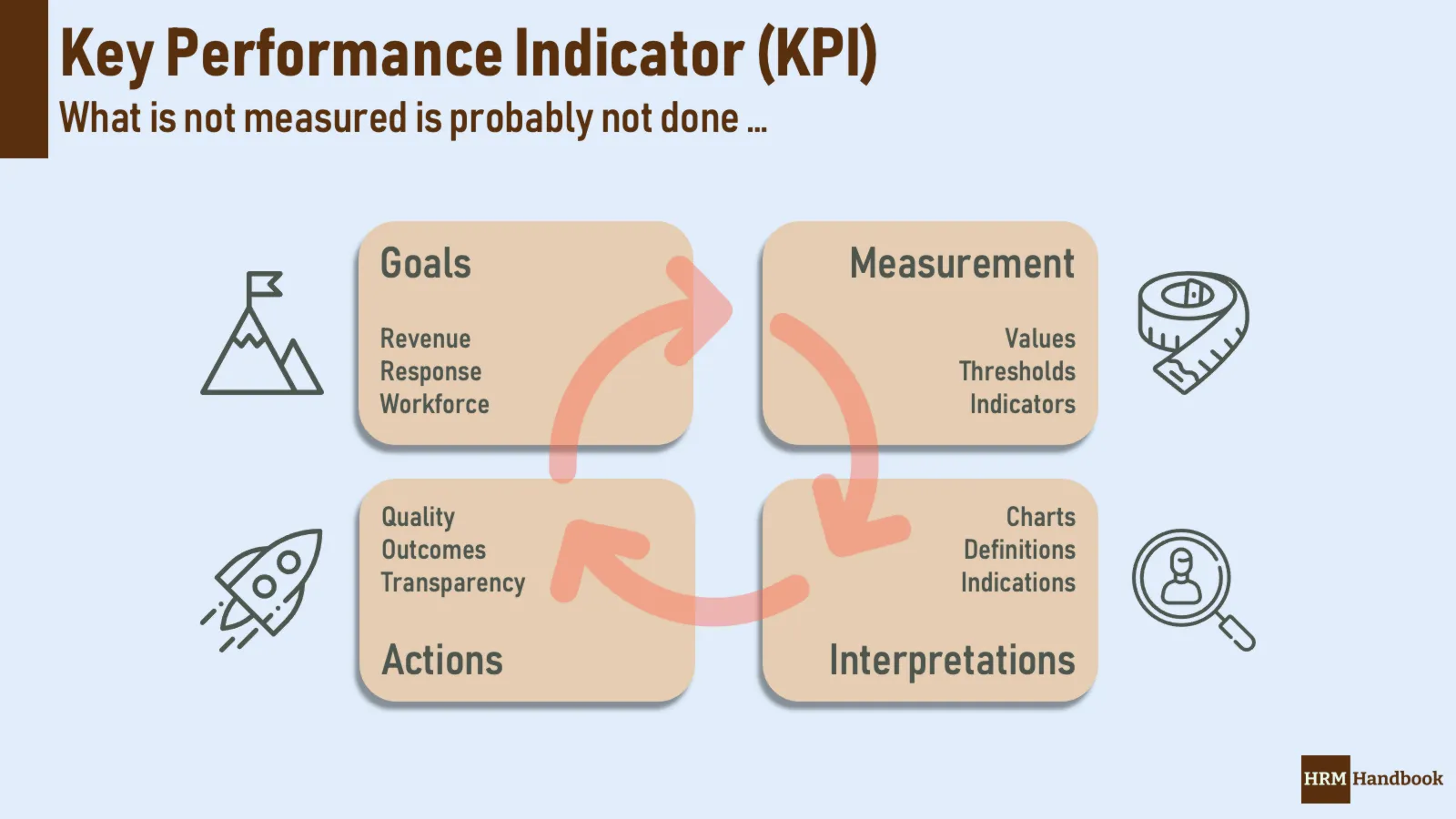KPI - Key Performance Indicator
What I don’t measure doesn’t happen. And what’s not happening is not contributing to the growth of the enterprise. Of course, I have to measure what’s really matter. Often, companies measure dozens of different metrics, but are not at all clear about which metrics relate to corporate strategy or human resource management strategy. In the final analysis, a KPI is an indicator of how a given thing is evolving over time, whether it is getting better or worse. By setting a target value, I am setting a direction for people or teams to take in order for the company to achieve success and be competitive in the marketplace.
What is a KPI?
KPI stands for key performance indicator, which is a quantifiable measure of performance over time for a specific objective. KPIs provide teams with goals to work towards, milestones to measure progress, and insights to help people throughout the organization make better decisions. From finance and human resources to marketing and sales, KPIs help all areas of the business move forward at a strategic level. KPIs are also quite closely related to KRAs (key result areas).
In general, people in a company focus on things that are measured and reported on regularly and discuss results. No one wants to be held accountable for KPIs that aren’t going well and take corrective action in a timely manner to get things moving in the right direction again.

Difference between KPI and simple measurement /metrics/
While KPIs and metrics are related, they are not the same. In a nutshell, the difference can be described as:
- KPIs are the key objectives you should be tracking to make the biggest impact on the strategic outcomes of your business. KPIs support your strategy and help your teams focus on what’s important. An example of a KPI is “target number of new customers per month”.
- Metrics measure the success of day-to-day business activities that support your KPIs. While they have an impact on your results, they are not the most important metrics. Examples include “monthly store visits” or “downloads of product specifications and survey results.”
Why are KPIs important?
KPIs are an important way to ensure that teams and individuals are supporting the strategic goals of the organization. Here are some of the main reasons why you need KPIs:
- Alignment and coordination between teams: Whether they measure project success or employee performance, they keep teams moving in the same direction.
- Regular review of progress and implementation: KPIs provide a realistic view of the health of your business, from risk factors to financial metrics.
- Regular reviews and adjustments.
- Accountability: Everyone provides value through KPIs that help employees track their progress and managers move things forward.
KPIs and Human Resources
For Human Resources, KPIs are important in setting HR strategy. Without proper KPIs, you can’t measure whether or not the implementation is progressing in the right direction. Often we say what we want, but we lack a description and a numerical expression of what the future should look like. And in doing so, we set ourselves up for failure with our new HR strategy because we can’t determine how far along we are. For example, for Human Resources Employee Turnover is mission critical.
Even more important are KPIs to manage performance, not just the day-to-day, so we know if employees are meeting expectations or standards. It’s also important for the process of setting regular targets and the appraisal system in general.